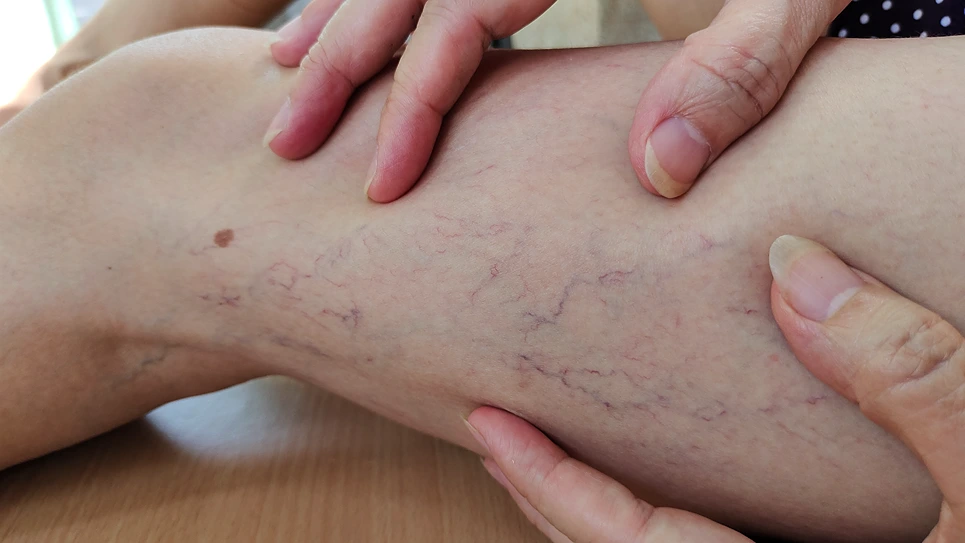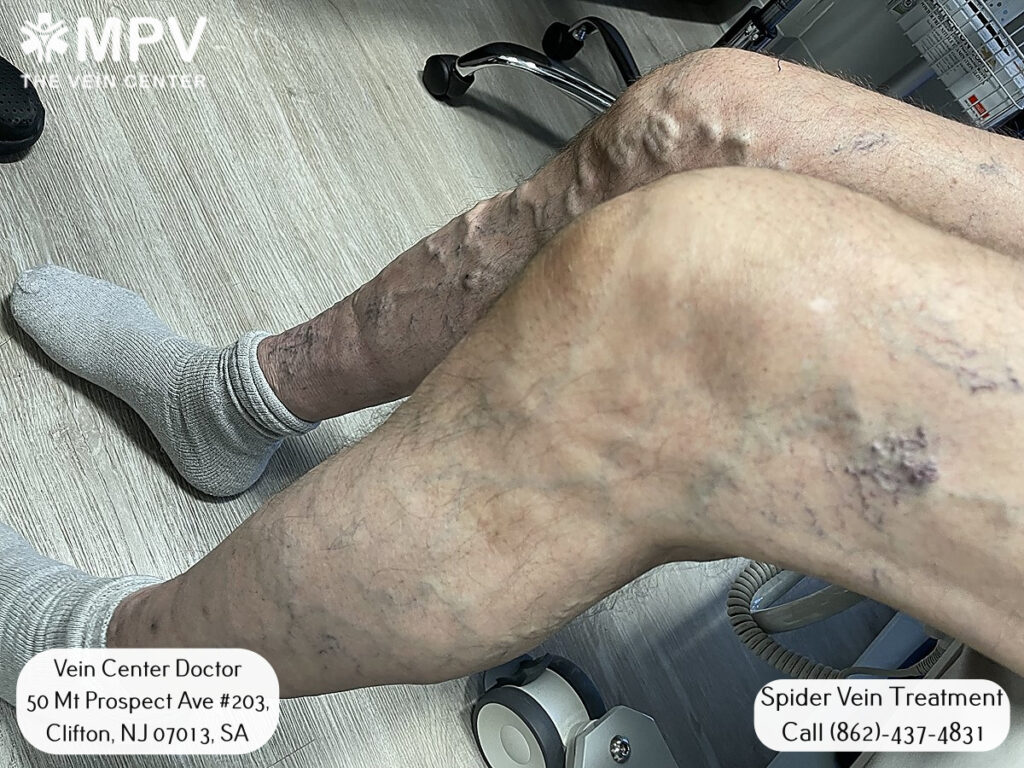Spider veins are small, twisted blood vessels visible under the skin's surface, typically on the legs. While harmless, many patients seek ways to reduce the appearance of spider veins for cosmetic reasons. This has sparked interest in natural approaches like using horse chestnut.
In this comprehensive guide, we’ll explore how horse chestnut may impact spider veins when taken orally or applied topically. We’ll break down what medical studies reveal about horse chestnut’s efficacy and safety for spider veins under Dr. Rahul Sood’s expert analysis.
Living with unwanted veins is a thing of the past, when you can simply schedule a free consultation with Vein Center Doctor and find your ideal solution today.
Spider veins arise from a variety of contributing factors, including:
While not themselves dangerous, spider veins can cause mild discomfort like aching, burning, throbbing or itching in some cases. Their appearance also leads many patients to seek treatment.
Horse chestnut (Aesculus hippocastanum) is a tree native to the Balkan Peninsula. Compounds in its seeds, bark and leaves have been used traditionally for many potential health benefits.
The active ingredients in horse chestnut are triterpene saponins such as aescin, shown to have anti-inflammatory and vein-strengthening effects. Horse chestnut also contains other plant compounds like flavonoids, which act as antioxidants.
Horse chestnut is available as oral supplements, topical creams, soaps or tonics. It's commonly used for chronic venous insufficiency, varicose veins, leg pain and swelling, poor circulation, and hemorrhoids. Enhancing its venous effects could potentially also improve spider veins.
Can taking oral horse chestnut supplements reduce the appearance or discomfort of spider veins? Here’s an overview of the available medical evidence:
Based on available evidence, Dr. Sood does not recommend oral horse chestnut supplements solely for spider vein improvement at this time, especially given the potential safety issues. More rigorously controlled research is still required to demonstrate efficacy.
Another option is applying topical horse chestnut creams directly onto spider veins. Here's an overview of current study findings:
While topical creams pose less side effect concerns, Dr. Sood maintains more rigorous controlled research is still needed before recommending horse chestnut creams as a first-line spider vein therapy, given the limitations above.

As a board-certified vein expert, Dr. Sood understands many patients’ interest in natural approaches like horse chestnut for improving spider veins and symptoms of venous insufficiency. However, he offers this cautionary guidance:
While the merits of natural options like horse chestnut are still under-investigated, advanced medical spider vein treatments supported by extensive research are available, such as:
Sclerotherapy - Direct injections to collapse and seal off affected veins. Highly effective, especially for smaller spider veins.
Endovenous Laser Ablation - Using heat energy to disappear veins. Best for deeper reticular veins.
Radiofrequency Ablation - Shrinking veins via tissue heating. Suitable for larger spider veins.
Surgical Vein Stripping - Removing extremely enlarged and bulging varicose veins via phlebectomy.
Under Dr. Sood's expert care, these proven spider and varicose vein treatment techniques can provide significant aesthetic and symptomatic relief superior to unvalidated natural products.
While the potential benefits of natural supplements like oral and topical horse chestnut for spider veins show initial promise, considerable research gaps remain before Dr. Sood can endorse such options as frontline treatments.
However, you can achieve real, lasting spider and varicose vein improvement through safe, advanced medical procedures like sclerotherapy and endovenous ablation under Dr. Sood’s cutting-edge care.
Contact The Vein Center today to schedule your consultation. With over 10,000 successful procedures performed, Dr. Sood is New Jersey and Westchester County's premier choice for state-of-the-art vein care.

Does horse chestnut get rid of spider veins?
There is currently limited quality evidence that oral or topical horse chestnut significantly improves spider vein appearance. More direct research is still needed.
Is horse chestnut FDA approved for spider veins?
No, horse chestnut has not been evaluated or approved by the FDA specifically for spider vein treatment or claims of removal.
What are risks of horse chestnut for spider veins?
Oral horse chestnut can have side effects like itching, nausea, and liver toxicity. Topical risks like rashes and irritation need further study.
How quickly does horse chestnut work on spider veins?
Data is lacking on the timeline for horse chestnut products to produce effects. Some limited studies suggest 4-6 weeks of use may be needed to notice possible improvements.
Is horse chestnut safe to use on spider veins while pregnant?
No, Dr. Sood advises against using horse chestnut while pregnant or nursing due to insufficient safety data on developmental risks to the fetus or infant.
Can I use horse chestnut creams and take supplements together?
Combining oral and topical horse chestnut is not medically recommended or studied for spider veins. Too high of aescin doses could increase side effect risks.
Why might horse chestnut improve chronic venous insufficiency?
Compounds like aescin may help strengthen vein walls and reduce inflammation that worsens venous symptoms that can secondarily exacerbate spider veins. But more quality data is still needed.
What should I know before using horse chestnut?
Consult Dr. Sood before trying it to ensure proper diagnosis and treatment monitoring. Self-prescribing horse chestnut risks inappropriate use, interactions, and missing serious underlying conditions.
How does Dr. Sood treat spider veins formally?
He uses scientifically validated treatments like sclerotherapy injections, laser/radiofrequency ablation, ambulatory phlebectomy and other vein procedures proven highly effective through extensive medical research.
When is horse chestnut insufficient for spider veins?
For moderate-severe spider veins or those with symptoms of chronic venous insufficiency, Dr. Sood advises against horse chestnut alone, instead recommending tried-and-true medical vein treatments for optimal removal and relief.
Find exactly what you need to get rid of your vein-related problems. Dr. Sood and the rest of our team at Vein Center Doctor are ready to help: schedule your free consultation today.
Most Insurance is accepted for treatment